FC Red Bull Salzburg
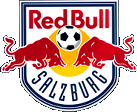 |
|||
| Full name | FC Red Bull Salzburg | ||
|---|---|---|---|
| Nickname(s) | Die Bullen (The Bulls) | ||
| Founded | 1933 | ||
| Ground | Red Bull Arena Wals-Siezenheim Austria (Capacity: 31,895) |
||
| Chairman | |||
| Manager | |||
| League | Austrian Bundesliga | ||
| 2009–10 | Austrian Bundesliga, 1st | ||
|
|||
FC Red Bull Salzburg is an Austrian football club, based in Wals-Siezenheim. Their home ground is the Red Bull Arena. The club was known as SV Austria Salzburg before being bought by the Red Bull company in 2005 who renamed the club and changed the club's colours from its traditional violet and white to red and white. The change resulted in some of the team's fans forming a new club, SV Austria Salzburg. The club has won the Austrian Bundesliga 6 times, and reached the final of the UEFA Cup in 1994.
Contents |
History
FC Red Bull Salzburg was founded on 13 September 1933 as SV Austria Salzburg. In 1950, the club was dissolved but in the same year, it was re-founded for the first time. In 1978, the official name was changed to SV Casino Salzburg and in 1997, to SV Wüstenrot Salzburg, while the common calling name remained SV Austria Salzburg. The Red Bull company bought the club on 6 April 2005 and rebranded it.
The Red Bull takeover
After the takeover, Red Bull changed the club's name, management, and staff, declaring "this is a new club with no history." Red Bull initially claimed on the club website that the club was founded in 2005, but was ordered to remove this claim by the Austrian F.A. The new authority removed all trace of violet from the club logo and the team now play in the new colours of red and white, to the consternation of much of the club's traditional support.[1] A small pair of wings form the motif of the new club crest, displayed on the team jersey, in accordance with Red Bull's commercial slogan at the time: "It gives you wings." This complete rebranding of the team proved very similar to Red Bull's treatment of its two Formula One racing teams, Red Bull Racing and Scuderia Toro Rosso. However, Red Bull would not completely follow this precedent when it acquired the MetroStars club in Major League Soccer in the United States; while it rebranded the team as the New York Red Bulls, it chose to recognise the MetroStars' history.

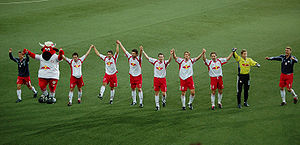
The traditional supporters tried to resist the radical changes and formed their own movement in order to regain some of the tradition. Several fan-clubs throughout Europe voiced their support in what they saw as a fight against the growing commercialisation of football. However, after five months of protests and talks between the club owners and traditional fans, no compromise was reached. On 15 September 2005, the "violet" supporters stated that the talks had irreversibly broken down and efforts to reach an agreement would be terminated.
This gave rise to two separate fan groups: the "Red-Whites", who support "Red Bull Salzburg" and the "Violet-Whites", who want to preserve the 72-year-old tradition and refuse to support the rebranded club. The Violet-Whites ultimately formed a new club, SV Austria Salzburg.
Recent history
In May 2006, Red Bull announced on its website that it had hired veteran coach Giovanni Trapattoni as new coach together with his ex-player Lothar Matthäus as co-trainer. The pair initially denied having reached a deal, but officially signed on 23 May 2006. Red Bull ultimately won the T-Mobile Bundesliga 2006-07 by a comfortable margin with five games still left in the season after drawing 2–2 with previous season's champions Austria Wien on 28 April 2007. Red Bull were beaten by Shakhtar Donetsk in the third qualifying round[2][3] of the UEFA Champions League 2007-08 and then knocked out of the UEFA Cup 2007-08 in the first round by AEK Athens. On 13 February 2008, Italian manager Giovanni Trappatoni confirmed that he would be taking over as the new Republic of Ireland manager in May. He was succeeded by Co Adriaanse, under whom they finished as champion, and he left after one year. His successor and the current manager of the team is Huub Stevens. Stevens won his first major title as the manager of a country's highest league on May 14th, 2010, which led the team to the title of the season 2009/10. In UEFA competitions, the team is referred to as FC Salzburg so as not to interfere with the federation's corporate sponsorship rules.
Ghana Academy
In 2008, Red Bull Salzburg opened their academy in Sogakope, Ghana.
On 27/8/10 Red Bull Salzburg were drawn alongside Manchester City in the Europa League Group A
Honours
- Champions: 1993-94*, 1994-95*, 1996-97*, 2006-07, 2008-09, 2009-10
Austrian Cup
- Runners-up: 1974*, 1980*, 1981*, 2002*
Austrian Supercup
- Winners: 1994*, 1995*, 1997*
- Runners-up: 1994*
* as Austria Salzburg
Current squad
- As of August 06, 2010
Note: Flags indicate national team as has been defined under FIFA eligibility rules. Players may hold more than one non-FIFA nationality.
|
|
Out on loan
Note: Flags indicate national team as has been defined under FIFA eligibility rules. Players may hold more than one non-FIFA nationality.
|
|
Red Bull Salzburg Juniors squad
Note: Flags indicate national team as has been defined under FIFA eligibility rules. Players may hold more than one non-FIFA nationality.
|
|
Manager history
 August Starek (1980–81)
August Starek (1980–81) Adolf Blutsch (1985–87)
Adolf Blutsch (1985–87)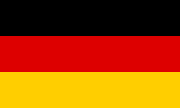 Kurt Wiebach (1988–91)
Kurt Wiebach (1988–91)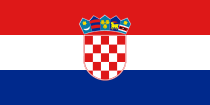 Otto Barić (1991–95)
Otto Barić (1991–95) Hermann Stessl (1995–96)
Hermann Stessl (1995–96) Heribert Weber (1996–98)
Heribert Weber (1996–98) Hans Krankl (1998–00)
Hans Krankl (1998–00) Miroslav Polak (2000)
Miroslav Polak (2000)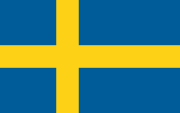 Hans Backe (2000–01)
Hans Backe (2000–01)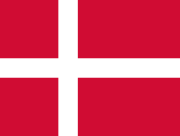 Lars Søndergaard (2001–03)
Lars Søndergaard (2001–03) Walter Hörmann (2004, caretaker)
Walter Hörmann (2004, caretaker) Peter Assion (2004–05)
Peter Assion (2004–05) Nikola Jurčević (2005)
Nikola Jurčević (2005) Manfred Linzmaier (2005, caretaker)
Manfred Linzmaier (2005, caretaker) Kurt Jara (2005–06)
Kurt Jara (2005–06)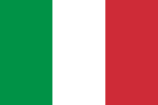 Giovanni Trapattoni (2006–08)
Giovanni Trapattoni (2006–08)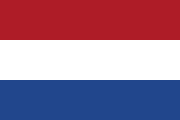 Co Adriaanse (2008–09)
Co Adriaanse (2008–09) Huub Stevens (2009–)
Huub Stevens (2009–)
European competition history
As of July 30, 2010.
- Q = Qualification
| Season | Competition | Round | Country | Club | Home | Away | Aggregate |
|---|---|---|---|---|---|---|---|
| 1971–72 | UEFA Cup | 1 | UT Arad | 3–1 | 1–4 | 4–5 | |
| 1976–77 | UEFA Cup | 1 | Adanaspor | 5–0 | 0–2 | 5–2 | |
| 2 | Crvena Zvezda | 2–1 | 0–1 | 2–2 | |||
| 1980–81 | UEFA Cup Winners' Cup | 1 | Fortuna Düsseldorf | 0–3 | 0–5 | 0–8 | |
| 1992–93 | UEFA Cup | 1 | Ajax | 0–3 | 1–3 | 1–6 | |
| 1993–94 | UEFA Cup | 1 | DAC Dunajska Streda | 2–0 | 2–0 | 4–0 | |
| 2 | Royal Antwerp | 1–0 | 1–0 | 2–0 | |||
| 3 | Sporting CP | 3–0 (AET) | 0–2 | 3–2 | |||
| QF | Eintracht Frankfurt | 1–0 | 5–4 (PEN) | 6–4 | |||
| SF | Karlsruhe | 0–0 | 1–1 | 1–1 | |||
| Final | Internazionale | 0–1 | 0–1 | 0–2 | |||
| 1994–95 | UEFA Champions League | Q1 | Maccabi Haifa | 3–1 | 2–1 | 5–2 | |
| Group D | AEK Athens | 0–0 | 3–1 | ||||
| Group D | Milan | 0–1 | 0–3 | ||||
| Group D | Ajax | 0–0 | 1–1 | ||||
| 1995–96 | UEFA Champions League | Q1 | Steaua Bucureşti | 0–0 | 0–1 | 0–1 | |
| 1997–98 | UEFA Champions League | Q1 | Sparta Prague | 0–0 | 0–3 | 0–3 | |
| 1997–98 | UEFA Cup | 1 | Anderlecht | 4–3 | 2–4 | 6–7 | |
| 1998 | UEFA Intertoto Cup | 2 | St. Gallen | 3–1 | 0–1 | 3–2 | |
| 3 | Twente | 3–1 | 2–2 | 5–3 | |||
| 4 | Fortuna Sittard | 3–1 | 1–2 | 4–3 | |||
| 5 | Valencia | 0–2 | 1–2 | 1–4 | |||
| 2000 | UEFA Intertoto Cup | 2 | Nistru Otaci | 1–1 | 6–2 | 7–3 | |
| 3 | Standard Liége | 1–1 | 1–3 | 2–4 | |||
| 2003–04 | UEFA Cup | 1 | Udinese | 0–1 | 2–1 | 2–2 | |
| 2 | Parma | 0–4 | 0–5 | 0–9 | |||
| 2006–07 | UEFA Champions League | Q2 | Zürich | 2–0 | 1–2 | 3–2 | |
| Q3 | Valencia | 1–0 | 0–3 | 1–3 | |||
| 2006–07 | UEFA Cup | 1 | Blackburn Rovers | 2–2 | 0–2 | 2–4 | |
| 2007–08 | UEFA Champions League | Q2 | Ventspils | 4–0 | 3–0 | 7–0 | |
| Q3 | Shakhtar Donetsk | 1–0 | 1–3 | 2–3 | |||
| 2007–08 | UEFA Cup | 1 | AEK Athens | 1–0 | 0–3 | 1–3 | |
| 2008–09 | UEFA Cup | Q1 | Banants | 7–0 | 3–0 | 10–0 | |
| Q2 | Suduva Marijampole | 0–1 | 4–1 | 4–2 | |||
| 1 | Sevilla | 0–2 | 0–2 | 0–4 | |||
| 2009–10 | UEFA Champions League | Q2 | Bohemians | 1–1 | 1–0 | 2–1 | |
| Q3 | Dinamo Zagreb | 1–1 | 2–1 | 3–2 | |||
| Play-off | Maccabi Haifa | 1–2 | 0–3 | 1–5 | |||
| 2009–10 | UEFA Europa League | Group G | Lazio | 2–1 | 2–1 | ||
| Group G | Villarreal | 2–0 | 1–0 | ||||
| Group G | Levski Sofia | 1–0 | 1–0 | ||||
| Round of 32 | Standard Liege | 2–3 | 0–0 | 2–3 | |||
| 2010–11 | UEFA Champions League | Q2 | HB Tórshavn | 5–0 | 0–1 | 5–1 | |
| Q3 | AC Omonia | 4-1 | 1–1 | 5-2 | |||
| Play-off | Hapoel Tel Aviv | 2-3 | 1-1 | 3-4 |
See also
- Red Bull Brasil
- RB Leipzig
- New York Red Bulls
- EC Red Bull Salzburg
References
- ↑ Initiative Violett-Weiß
- ↑ Salzburg – Shakhtar Donetsk : 1 – 0 Match report from ScoresPro.com
- ↑ Shakhtar Donetsk – Salzburg : 3 – 1 Match report from ScoresPro.com
External links
- (English) Official website
- FC Salzburg at UEFA.COM
- FC Salzburg at EUFO.DE
- FC Salzburg at Weltfussball.de
- FC Salzburg at Playerhistory.com
- FC Salzburg at Transfermarkt.de
- FC Salzburg at Football Squads.co.uk
- FC Salzburg at National Football Teams.com
- FC Salzburg at Football-Lineups.com
- Red Bull Salzburg at Wikimedia Commons
|
||||||||||||||||||||
|
|||||
|
||||||||||||||